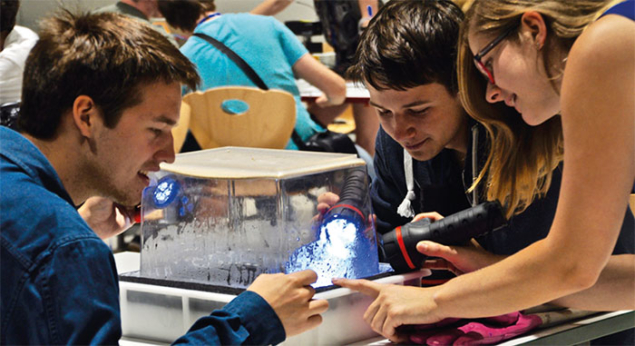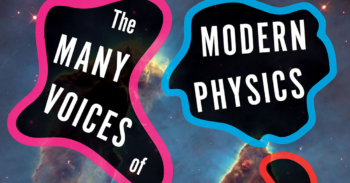
Image credit: Jeff Wiener.
As far back as 1939, the US educator Abraham Flexner penned a stirring paean to basic research in Harper’s Magazine under the title “The usefulness of useless knowledge.” Flexner, perhaps being intentionally provocative, pointed out that Marconi’s contribution to the radio and wireless had been practically negligible. He went on to argue that the 1865 work of James Clerk Maxwell on the theoretical underpinnings of electricity and magnetism, and the subsequent experimental work of Heinrich Hertz on the detection of electromagnetic waves, was done with no concern about the practical utility of the work. The knowledge they sought, in other words, was never targeted to a specific application. Without it, however, there could have been no radio, no television and no mobile phones.
The history of innovation is full of such examples. It is practically impossible to find a piece of technology that cannot be traced back to the work of scientists motivated purely by a desire to understand the world. But basic research goes further. There is something primordial about it. Every child is a natural scientist imbued with curiosity, vivid imagination and a desire to learn. It is what sets us apart from any other species, and it is what has provided the wellspring of innovation since the harnessing of fire and the invention of the wheel. Children are always asking questions: why is the sky blue? What are we made of? It is by investigating questions like these that science has advanced, and because it can inspire children to grow up into future scientists or scientifically aware citizens.
Education and training are among CERN’s core missions. Over the years we have developed programmes that reach everyone from primary-school children to professional physicists, accelerator scientists and computer scientists. We also keep tabs on the whereabouts of young people passing through CERN, and it is enriching to follow their progress. Around 1000 people per year receive higher degrees from universities around the world for work carried out at CERN. Basic research therefore not only inspires young people to study science, it also provides a steady stream of qualified people for business and industry, where their high-tech, international experience allows them to make a positive impact.
Turning to the UN’s admirably ambitious Global Goals for Sustainable Development, which officially came into force on 1 January 2016 and will last for 15 years as part of the Agenda 2030 programme, the focus on science and technology is positive and encouraging. It testifies to a deeper understanding of the importance of science in driving progress that benefits all peoples and helps to overcome today’s most pressing development challenges. But Agenda 2030’s potential can only be fulfilled through sustained commitment and funding by governments. If we are to tackle issues ranging from eliminating poverty and hunger to providing clean and affordable energy, we need science and we need people to be scientifically aware.
Places like CERN are a vitally important ingredient in the innovation chain. We contribute to the kind of knowledge that not only enriches humanity, but also provides ideas that become the technologies of the future. Some of CERN’s technology has immediate impact on society, such as the World Wide Web and the application of particle accelerators to cancer therapy and many other fields. We also train young people. All this is possible because governments support science, technology, engineering and mathematics (STEM) education and basic research, but we should do more. The scientific community, including CERN, urged Agenda 2030 to consider a minimum GDP percentage devoted by every nation to STEM education and basic research. This is particularly important in times of economic downturn, when private funding naturally concentrates on short-term payback and governments focus on domains that offer immediate economic return, at the expense of longer-term investment in fundamental science.
Useless knowledge, as Flexner called it, is at the basis of human development. Humankind’s continuing pursuit of it will make the UN’s development goals achievable.





